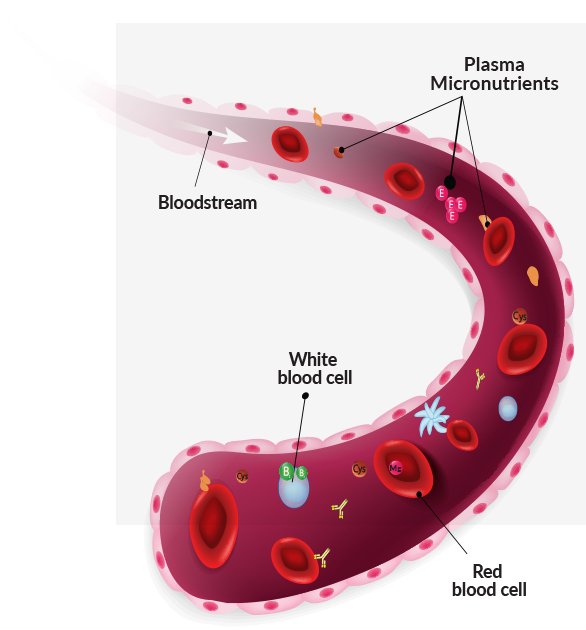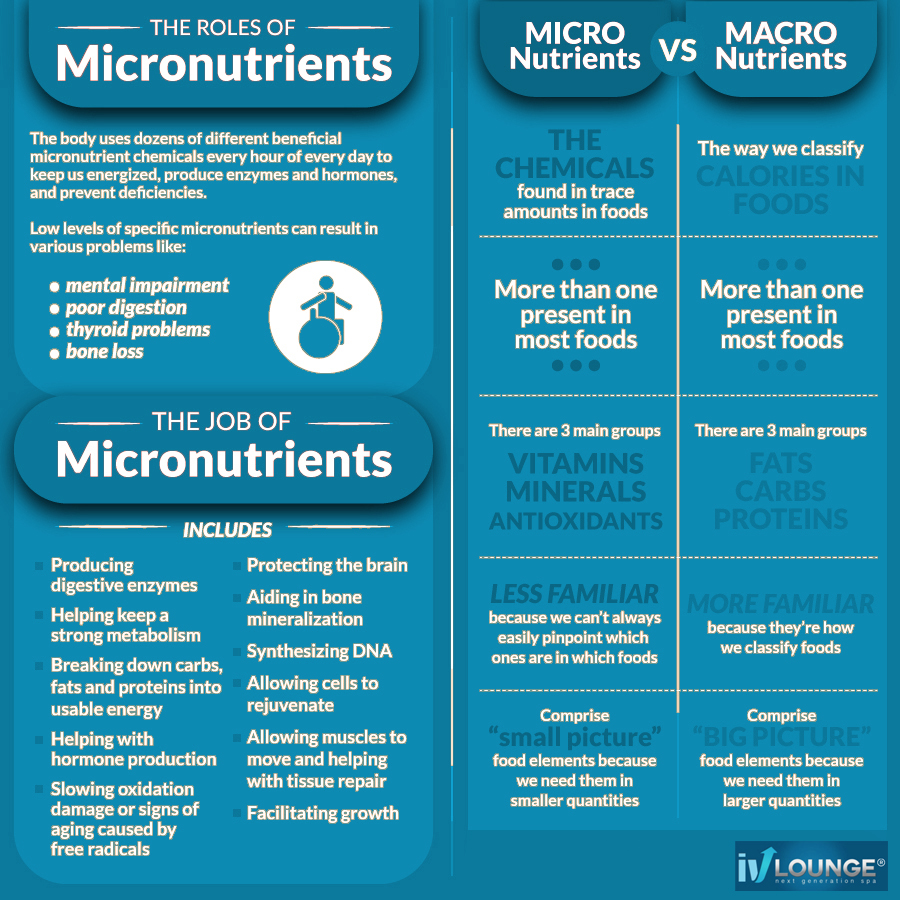Micronutrient Testing And Clinician Consultation
Micronutrients Testing
WHAT ARE MICRONUTRIENTS?
Micronutrients, as opposed to macronutrients (protein, carbohydrates and fat), are comprised of vitamins and minerals which are required in small quantities to ensure normal metabolism, growth and physical well‐being.
VITAMINS
These are essential organic nutrients, most of which are not made in the body, or only in insufficient amounts, and usually must be obtained through food. When dietary intake of a vitamin is inadequate, deficiency disorders result. Although vitamins are only present and required in minute quantities, compared to the macronutrients, they are just as vital to health and need to be considered in the context of nutrition quality.
MINERALS
These are inorganic nutrients that also play a key role in ensuring health and well‐ being. They include the trace elements copper, iodine, iron, manganese, selenium, and zinc together with the macro elements calcium, magnesium, potassium, and sodium. As with vitamins, minerals are found in small quantities within the body and they are obtained from a wide variety of foods.
No single food contains all of the vitamins and minerals we need and, therefore, a balanced and varied diet is necessary for an
adequate intake of all micronutrients.
EXTRACELLULAR MICRONUTRIENTS
Micronutrients that are free floating in your blood and exist outside the cells, determined in serum are called extracellular micronutrients.
These extracellular micronutrients are a static measure of what is in your blood at any given time. These are dependent on your short-term intake of supplements or diet and give a direct assessment of your baseline micronutrient levels.
Extracellular nutrient tests reflect a person’s diet over a relatively narrow time frame.
INTRACELLULAR MICRONUTRIENTS
Intracellular micronutrients are the micronutrients absorbed by your circulating white blood cells and red blood cells.
Cellular micronutrient absorption is an important step in maintaining and promoting optimal functioning of all our cells.
It is important to understand that, even though you may be consuming an adequate or healthy diet or supplements, your cellular intake levels of those nutrients may not be sufficient and may still provide risks for deficiencies and the disorders associated with them.
Your genetics, aging, lifestyle, chronic illness, and medications all affect your cellular nutrient absorption. The intracellular portion of Vibrant’s micronutrient test takes all the above factors into consideration to identify your cellular nutrient absorption status. This test can reveal a person’s functional nutritional status over a much longer time (4-6 months) than extracellular testing.
Clinical Applications of Micronutrient Testing:
- Wellness and longevity
- Anti-aging
- Sports performance optimization
- Weight loss
- Fatigue
- Impaired cognition and neurological disorders
- Mood disorders
- Cardiovascular disease
- Fertility
- Osteoporosis
Courtney Mosser RD, CSO, LDN, CLT, RYT
Registered DietitianCourtney graduated from the University of Florida with a degree in Food Science and Human Nutrition and is currently completing a Masters in Functional Medicine and Human Nutrition. She has a rich professional background. She has worked in corporate wellness programs, is the lead dietitian at the Florida Hospital Cancer Institutes and the University of Florida Sports Nutrition Program.
How it works
- Call for a free consultation on the micronutrient testing with our clinical staff.
- Come to the IV Lounge to get your blood drawn.
- A registered dietitian will contact you with an individualized consultation about your results and provide personalized recommendations.

